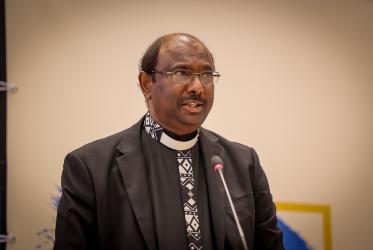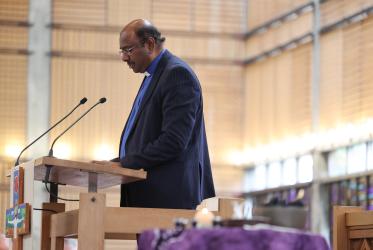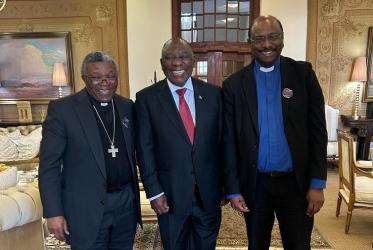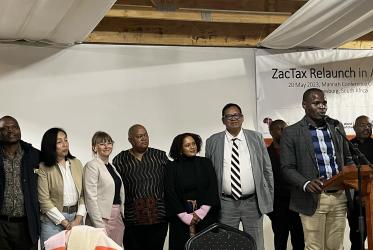South Africa
The original inhabitants of South Africa were the Khoikhoi, later joined by Bantu groups migrating from the north. In 1652 the Dutch settled in the Cape, and slowly extended into the interior. The Boers, as they were called, fought the Africans until they were themselves defeated in 1902 by the British, who established the self-governing Union of South Africa. In 1948 the Nationalist Party of the Afrikaners (Boers), came into power and put in place the racist apartheid regime, based on total, legalized separation of the whites, blacks, coloured and the small Indian population. The white Reformed churches provided the theological justification of the system. They withdrew from the WCC in 1961. The African National Congress, formed in 1912, became the opponent of apartheid, later followed by other movements. The struggle against apartheid is marked by the Sharpeville shooting (1960), the Rivonia trial of Nelson Mandela (1964), the Soweto uprising (1976), the assassination of Steve Biko, countless other tragedies, and the unflinching determination of a people to free itself from an evil yoke. Several churches in South Africa denounced apartheid more and more openly, led by Archbishop Tutu, Rev. Boesak, and many others. Key documents were the Belhar Confession, the Kairos document and Evangelical Witness in South Africa. The South African Council of Churches played a major role. In 1991 Mandela was released from prison; on 27 April 1994 in the first free and democratic elections of South Africa he was elected president. The current membership of the Council of Churches includes the Catholic Church, the Apostolic Faith Mission (Pentecostal), and the Dutch Reformed Church. There are many indigenous churches, the largest being the Zion Christian Church, with eight million members. Evangelical and Pentecostal churches are also active. The Evangelical Alliance of SA is affiliated with the WEA.
More on South Africa:
Ecumenical solidarity visit to South Africa
An international ecumenical "Living Letters" delegation sent by the World Council of Churches (WCC) visited South Africa from 5 - 12 November 2008. This visit was significant because of the role the country's churches and their national council have played in overcoming the violence of the apartheid ideology and system.





